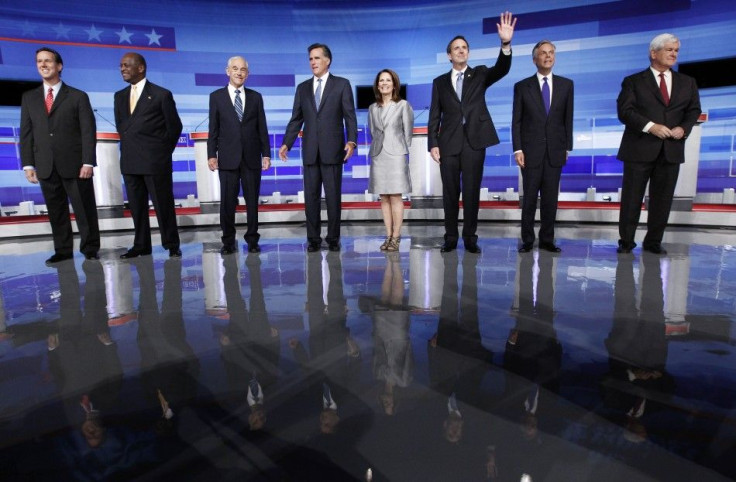Election 2012: Early Reports Suggest Republican Success

It may be a long road for Democrats in the upcoming election season.
According to the latest POLITICO-George Washington University Background Poll, which was reported by POLITICO Tuesday, the political environment is very poor for both President Obama and Congressional Democrats.
While Obama maintains a 45 percent approval rating (50 percent disapproval), his approval on dealing with economic issues is far worse, with a 58 percent disapproval rating. Considering that 73 percent of voters select economic, or pocketbook issues as the most important issue to them, this is a disappointing number for the president.
Indeed, the economy has not getting any better. But the president has tied his fate to whether the economy improves. Last month, he told CBS:
For me to argue, look, we've actually made the right decisions, things would have been much worse had we not made those decisions,' that's not that satisfying if you don't have a job right now, President Obama said. And I understand that and I expect to be judged a year from now on whether or not things have continued to get better.
Now that the White House now predicts that unemployment likely will remain around 9 percent through 2012, those words could come back to haunt the President as he runs for re-election next year. More than seven in 10 voters believe the country is on the wrong track. If this trend continues into next year, the Republican candidate may use the above clip in campaign advertisements.
In 2010, Obama tried to stem congressional losses by emphasizing that he inherited the fiscal crisis from the previous administration. That argument was not successful by Election Day in 2010, and it probably will be even less successful when 2012 comes around, if he does try to use that argument at all.
For Congressional Democrats, some of the struggles looming are structural. In 2006, dissatisfaction with President Bush and Congressional Republicans, mostly because of the war in Iraq, led to the U.S. House of Representatives and the U.S. Senate changing from Republican control to Democratic control. In 2012, the freshman senators from 2006 will have to face re-election, and many of them are in tight races.
In 2008, the Democratic wave continued, partially due to the high enthusiasm gap for Obama. However, the enthusiasm seems to be waning from Democrats. While 74 percent of Republican voters say they have thought at least somewhat about the 2012 election, compared to only 60 percent. In order for Obama to remain competitive, he will need to reignite at least some of the people who turned out for him in 2008.
New, or reduced, voting districts may also hamper Democrats next fall. Republicans captured control of governorships and state legislatures across the country. Now, these Republican-controlled state governments will control the redistricting process, which happens every 10 years after the U.S. Census is released. This could lead Democratic House incumbents to pack up and head home (or K Street).
There are some bright spots for the Democrats. The Republicans are not particularly popular, and neither are their policies they have forcefully advocated. A Pew research center poll put out last week shows that just 22 percent of voters believe that Congressional Republicans are doing a good job, a number below that of the Democrats (29 percent).
The approaches for dealing with debt favor Obama and the Democrats. Fifty-six percent of voters in a recent Reuters poll favored cutting spending and increasing taxes, a plan favored by Obama and his congressional allies. Only 19 percent favored the Republican plan of cutting spending without raising taxes. Of course, the majority of Americans said they did not believe the debt ceiling should be raised anyway, despite officials such as Treasury Secretary Tim Geithner warning that the consequences of defaulting on debt would have been disastrous.
The Republican primary season may soon get nasty, as Texas Gov. Rick Perry and Rep. Michele Bachmann (R-MN) fight to court tea party voters, while Romney tries to portray himself as a Tea-Party candidate. A bruising primary season that lasts well into the spring and summer could pave divisions within the GOP, thus helping Obama stay above the fray. However, if the primary season wraps up by Iowa, the Republican candidate will have a lot of time to try to rebuild his or her image heading into the election with the president.
© Copyright IBTimes 2024. All rights reserved.





















